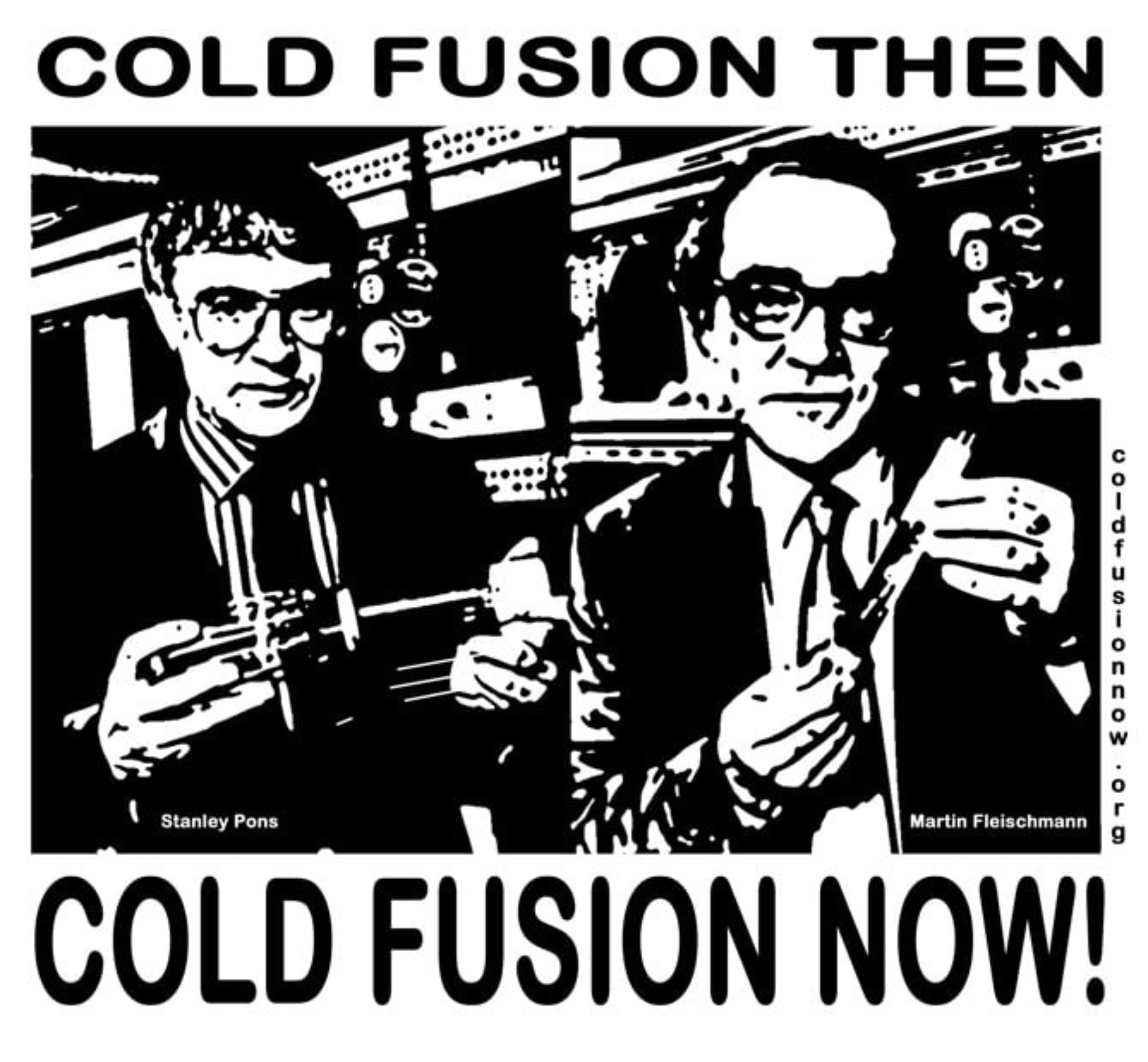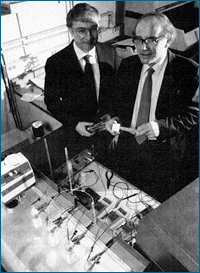“…SPIEGEL ONLINE has obtained information from German government sources knowledgeable of the situation in Athens indicating that Papandreou’s government is considering abandoning the euro and reintroducing its own currency.” [4]
—Christian Reiermann Athens Mulls Plans for New Currency, Greece Considers Exit from Euro Zone Der Spiegel Online
By indirections find directions out.
— Shakespeare
There is a category of inventions called disruptive technology. Funding streams allotted to this sector award designers who innovate based on radical departures from incremental change. A cursory search of disruptive technology will yield many examples, most of which are IT-oriented, such as breakthroughs in social networking, cloud computing, and cyber security.
You will find little to no mention of the most disruptive technology of all, cold fusion, even as the first commercial device is poised to be installed later this year. Defkalion Green Technologies based in Athens, Greece holds the world rights, excepting the Americas, for Andrea A. Rossi‘s Energy Catalyzer, or ECat, a new energy reactor based on cold fusion technology, which Mr. Rossi prefers to be called low-energy nuclear reactions. A factory located in Xanthi, Greece plans to use an array of smaller models of the publicly demonstrated 12 Kw ECat, linked together, to generate 1MW power for the purpose of manufacturing more ECats.
Steven B. Krivit of New Energy Times published on his blog the possible board of directors for Defkalion as:
– Sortikos George, businessman, born 1942, President
– George Xanthoulis, student, son of Alexandros Xanthoulis, born 1987, Vice President
– Aurel Christian David, Managing Director, born 1969
– Christos Stremmenos, University Professor, born 1932
– PRAXEN L.T.D., Company based in Cyprous, will be represented by Alexandros Xanthoulis, born 1954
– John Chadjichristos, business consultant, member of the board, born 1958
– Andreas Meidanis, industrialist, member of the board, born 1953
– Muafak Sauachni, medical doctor, (Israeli), member, born 1961
– Andreas Drugas, business consultant, born 1945
Member Christos Stremmenos is a University of Bologna professor who was interviewed recently on Radio Città del Capo in Bologna, Italy about the ECat technology. Portions of the interview have been translated from Italian by Alex Passi in a piece on the website 22passi.blogspot.com entitled Stremmenos: “cold fusion will solve many problems of humanity”. [1]
In the interview, Professor Stremmenos mentions “his mediation with the Greek government to make an industrial plant possible. For this purpose, Defkalion Green Technology was formed, a business venture of which he is vice-chairman — on “honorary terms”, he says.
When asked about the role of the Greek government in the formation of Defkalion and the initiation of the factory in Greece, Professor Stremmenos replied with some background:
“When I retired, I wanted to set up my own lab and quietly continue my research. But I did inform George Papandreou, the current Prime Minister, who at the time was President of PASOK. In the Convention which elected him, there were these commissions working on various aspects of the Greek economy. These were supposed to lay down the most favoured Party’s platform for government. So I told him, “George, look” — I explained — “I’m still working on this”. So at the Convention he says: “You know, I believe in this thing too, but who knows when it will come about” “I don’t know”, I said, “ truth and fate we haven’t got, but we must support and pursue this line.”
When the recent breakthrough in energy production came with Mr. Rossi’s catalyst, Professor Stremmenos says he wrote to Mr. Rossi “I’d like to follow this thing up in Greece too, because right now there are serious economic problems in my country”. Later, he states,
“In short, considering the climate, the mindset of the present government in Greece …let me tell you, even the opposition has now asked to be informed on this issue, too. Therefore in Greece this matter is treated without prejudice, no one is uncommitted. Here, Rossi is right, there is not much one can do about it…”
Whatever the veracity of the report by Der Speigel Online that Greece would like to “exit’ from the Euro Zone, if a factory in Greece has the rights to manufacture the biggest breakthrough energy technology since the burning of wood, and the government has confidence that it’s ready to be commercialized, these events would influence any decision to leave the Euro behind, and speculate on perhaps creating their own currency backed by profits of ECat manufacturing and licensing, estimated in the hundreds of trillions of dollars? [5]
Separated from the European Central Bank, the people of Greece could be able to keep this wealth derived from energy, close to its shores. Where over two-thousand years ago, the roots of modern science, math, and democracy first emerged, we may now see a next-generation energy technology that will extend globally, for the first time in history, the opportunity for all humans to be equally self-sufficient.
The reality is that once the technology is spread, the opportunity for a change in living arrangements will be immediate, and a boon to the entire planet. New and better devices will be developed with applications we cannot think of today; an entirely new service environment with new roles for humans to play.
In a Wall Street Journal update after the secret meeting held last night in Luxembourg, Finance Minister George Papaconstantinou has refuted the notion that Greece will leave the Euro Zone, and there are other points to factor in. But as Greece roils from a year of financial crises that continues to bring its people into the streets protesting, the European Union won’t let Greece go easily, as revealed in the dire predictions for its economy should Greece ever depart.

As this technology emerges into the public awareness, “there will be a stampede” for cheap, clean, energy generated by the hydrogen in water. Our current global industries of oil, gas, and coal will be obsolesced by a small, portable, self-contained energy reactor that can supply all personal energy needs for about a quarter to a third of current prices, and eventually, even cheaper.
The dollar, once “as good as gold”, became a petro-dollar linked with the currency of oil and as cold fusion technology permeates society, the dollar will not retain its status as the world’s reserve currency. Corporations, and all levels of government that exist for these non-entities, will see profits landslide. Cold fusion, and all new energy technologies, challenge the power that existing networks of money and hydrocarbons have, and after reigning for a hundred years, it won’t go down easy.
The public must be prepared to defend this ultra-clean energy technology. Be prepared for the assault by the diehards on this the most disruptive of technologies.
Challenge energy policies that do not include cold fusion relentlessly.
Support young, independent new-energy companies designing next-generation technologies.
Defend your right to clean energy.
And begin transitioning to the next phase in human existence.
Cold Fusion Now!
Related links
1. 22passi.blogspot.com interview with Christos Stremmenos at http://22passi.blogspot.com/2011/05/stremmenos-cold-fusion-will-solve.html translated by Alex Passi and Alfredo Knecht.
2. Cash-Flow interview with Dr. Edmund Storms: “There will be a stampede.” excerpts transcribed by Ruby Carat.
3. Defkalion Green Technologies http://www.defkalion-energy.com/
4. Der Spiegel Online Athens Mulls Plans for New Currency Greece Considers Exit From Euro Zone.
5. Infinite-Energy Cold Fusion and the Future Part 2 – A Look at Economics and Society by Jed Rothwell
6. New Energy Times blog Possible Listing of Defkalion Board Members by Steven B. Krivit.
7. Ny Teknik Ny Teknik tested the energy catalyzer by Mats Lewan.
8. Pure Energy Systems Andrea Rossi with Sterling Allan on Coast-to-Coast AM by Hank Mills.
9. Wall Street Journal UPDATE: Greece must plan next steps for 2012-2013.



